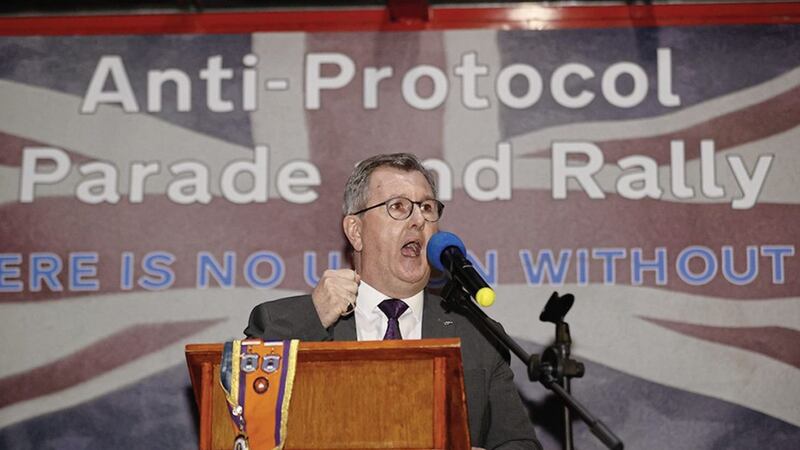At the weekend An Taoiseach Micheál Martin, Michelle O’Neill and Irish-American Congressman Richard Neal all issued statements marking the 24th anniversary of the Good Friday Agreement.
Sadly the three statements all implicitly recognised the present parlous state of the GFA.
Martin said the GFA “needs to be protected”. O’Neill referred to “the present realities…like Brexit and protecting Ireland’s future beyond it and the challenges that remain.” Neal reminded people that the US “was a guarantor of this historic peace accord”, but warned, “we must ensure this blueprint for lasting peace and stability remains.”
From the British government and unionism the sound of silence.
Despite all the brave talk in the weekend statements supporting the GFA about how far we’ve come in the last 24 years, the truth is that there has been no change in certain fundamental truths. Three weeks ago was the fiftieth anniversary of the abolition of the rotten one-party system at Stormont to which successive British governments had turned a blind eye. The British had to abolish it because the unionists who ran it could not countenance recognising the political and civil rights of northern nationalists and accordingly a place in the society where they lived. That was asking too much. Also recognising the existence of an Irish identity symbolically and practically in this part of Ireland was beyond contemplation.
Compelled at Sunningdale to accept an equal role for the representatives of northern nationalists in running this place, unionist politicians as usual conspired openly with paramilitaries to put paid to the policy of their own government as they did on every occasion since 1912. For the next 25 years unionists refused to share power on equal terms with the SDLP. The north was their “wee country” which the British had invented for them in 1921 and they wouldn’t share it with Fenians.
After the GFA was agreed by referendums north and south (though with only about 50 per cent of unionist support) those unionists unwilling to treat nationalists on equal terms worked steadily to undermine unionists supporting the GFA.
One of those leading the opposition to the GFA was Jeffrey Donaldson who had deserted the negotiations leading to the agreement at the last minute. The party Donaldson eventually came to lead has never supported the GFA, never agreed to share power on equal terms and, as Donaldson has said, the thought of a Sinn Féin first minister is “a problem”. It’s a problem because unionists have to pretend they still run this place and delude their supporters that ‘first minister’ means prime minister.
That’s why Michelle O’Neill was correct in her weekend statement about the GFA to say that, “the focus has to be on sharing power” because that’s what unionists are trying to avoid.
Make no mistake, the anti-protocol rallies, poorly attended as they are, are in reality protests against the requirements of the Good Friday Agreement and particularly the requirement to live on equal terms with the rest of the people in Ireland north and south. The DUP has done everything it can for the past 24 years to circumvent that requirement. Presently their position is that they will not cooperate in constructing an administration until the protocol is abolished.
Quite simply that means they intend to wreck the Good Friday Agreement. Donaldson has brought the DUP more than half way to his objective by walking away (unlawfully) from the North-South Ministerial Council and the executive.
Ominously in neither case did the British government utter a cheep. That raises the question of how complicit this British government is in working to undermine the GFA. Johnson’s government’s motives are not the same as anti-agreement unionists. Johnson’s nativist ministers object to Irish government involvement in the affairs of the UK and any remaining EU presence.
Their motives may be different, but their objective is the same and that is to overturn the GFA which involves both EU and Dublin.









